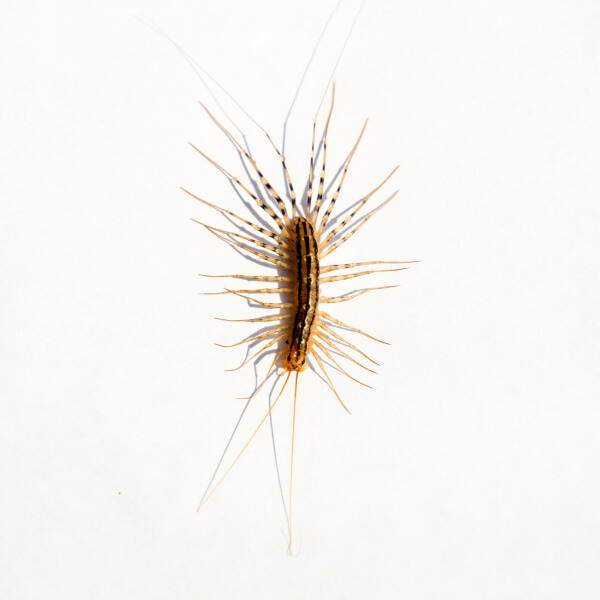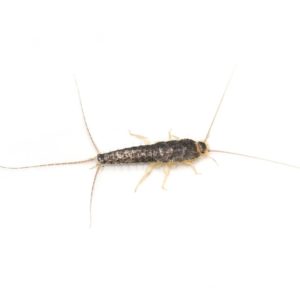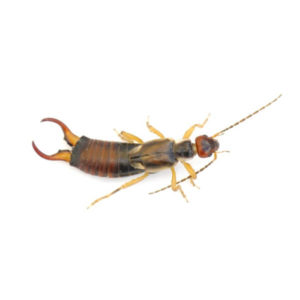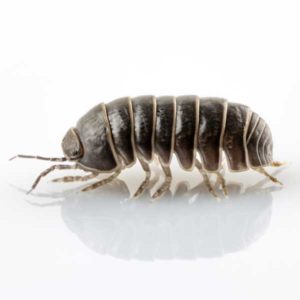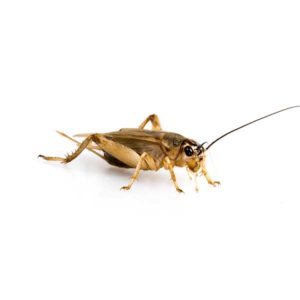House Centipedes in North Carolina
House centipedes are found throughout the United States and have an abundance of legs, fifteen pairs of very long, slender legs to be exact. As terrifying as they look, house centipedes are beneficial invertebrates, assisting homeowners in keeping pests like cockroaches and spiders under control. Though house centipedes are found both indoors and outdoors, accidentally finding one trapped in the sink or bathtub, can be frightening. When outdoors, house centipedes are not considered harmful, but they may be considered pests when they share living spaces with us.
Because there are many different types of beetles in North Carolina, they can be difficult to distinguish, however our common beetle species can help with this.
House Centipede Habitat
House centipedes are attracted to moisture and can be found outside under stones, boards, or sticks or beneath moist leaf litter and other organic matter. When found in homes, house centipedes most often occur in moist cellars, damp closets, and bathrooms, where they feed on insects and spiders. When disturbed, centipedes move quickly toward darkened hiding places. If house centipedes are abundant, there may be an underlying moisture problem in the home that should be corrected.
House Centipede Behaviors, Threats, or Dangers
House centipedes have a pair of poison claws located behind their head and use them to poison and paralyze their prey, usually small insects. House centipedes are considered nuisance pests and when they come into your yard, it is often because they are looking for food. If centipedes find food near your exterior walls, and there are open cracks or crevices, they can accidentally get inside your home.
If you are dealing with house centipedes on your property, contact your local exterminators.
Signs of a House Centipede Infestation
While house centipedes are solitary creatures, frequent sightings can indicate their presence in large numbers. Signs include:
- Spotting centipedes on walls, ceilings, or floors, especially in damp areas.
- Finding their small, cylindrical droppings in hidden areas.
- Encountering other small insects, which could attract centipedes to your home.
House Centipede Bites
House centipedes can bite in self-defense if handled. The weak jaws of the house centipede can penetrate the skin, but with difficulty. Bites can result in swelling and pain, but usually are no worse than a bee sting, with slight swelling or a red mark.
Are House Centipedes Dangerous?
While their appearance might be alarming, house centipedes are not dangerous. They do not cause damage to property or pose a significant health risk to humans.
How to Get Rid of House Centipedes?
Eliminating house centipedes involves reducing their habitat and food sources:
- Reduce moisture in your home by using dehumidifiers and fixing leaks.
- Seal cracks and crevices to prevent them from entering.
- Keep the house clean to reduce the insects that centipedes feed on.
- Use sticky traps to catch them in areas where they are frequently seen.
Need help with House Centipedes control?
Frequently Asked Questions
What Causes Centipedes in Your House?
Centipedes enter homes in search of food and moisture. High humidity levels, leaks, and the presence of other household pests can attract them.
Should I Kill House Centipedes?
Killing house centipedes is not always necessary. Considering their beneficial role in controlling pests, it may be more advantageous to manage their presence through preventive measures and environmental control.

